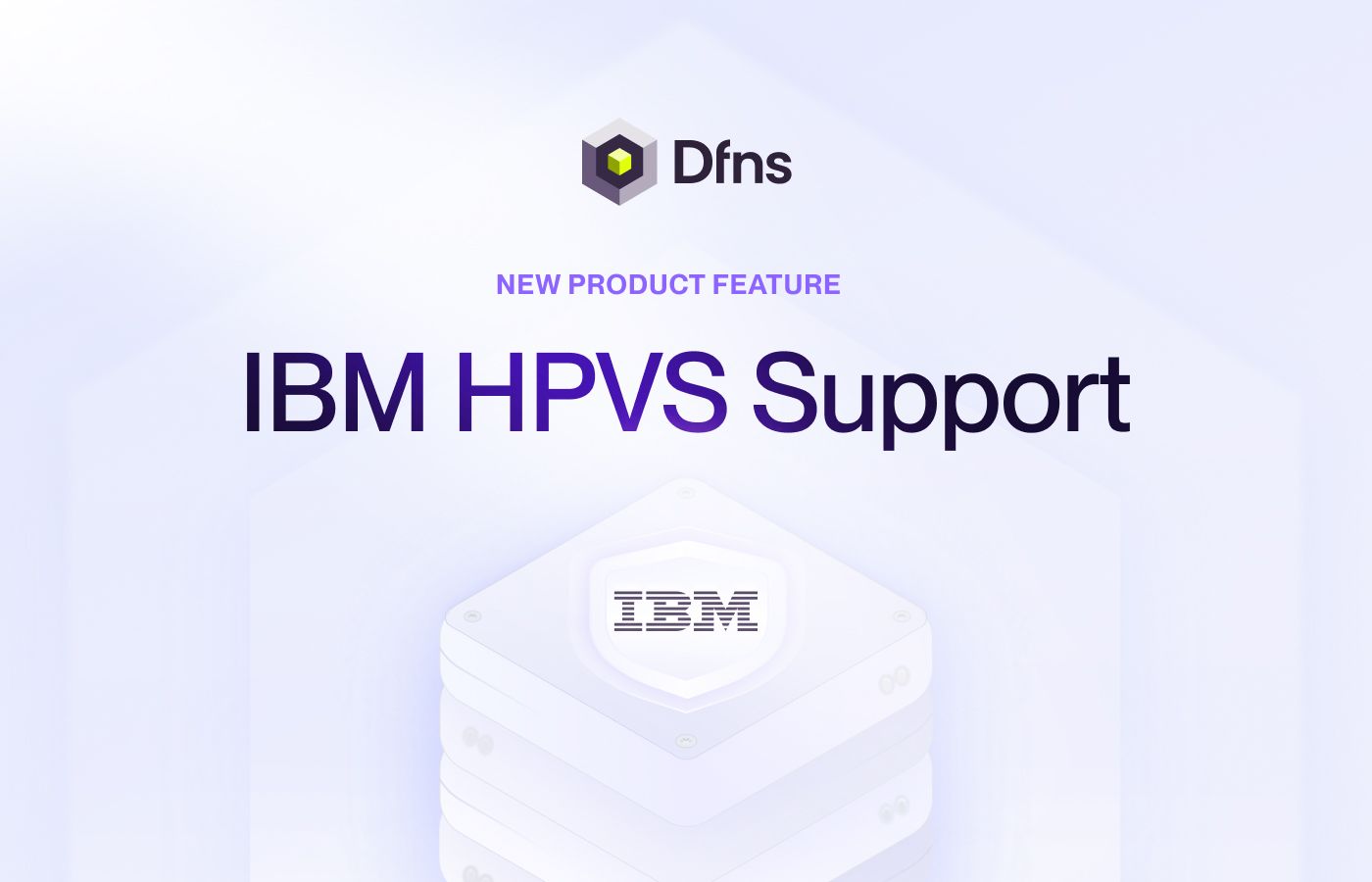
Dfns now supports fee sponsorship, allowing our clients to pay transaction fees on behalf of their users directly through our API.
At Dfns, we are always working to make building with wallets easier, safer, and more flexible. Today, we're excited to launch Fee Sponsor Wallets, a new feature that removes friction in user experience for onchain applications and makes automated transaction workflows easier, especially for use cases like payments and trading. Initially available on Solana, our Fee Sponsor Wallets will expand to other major blockchains in the coming weeks. Ethereum/EVM and Tron are next on our roadmap.
Why fee sponsorship matters on blockchains
Fees are the price of trust on blockchains. They exist to prevent spam, reward validators, and anchor transactions in a shared execution layer. But in practice, they also introduce friction.
Users often struggle with fee-related issues, such as needing to hold SOL to complete a transfer or understanding why a transaction fails due to insufficient gas. Developers building user-friendly applications face additional challenges around token management, wallet funding, and maintaining faucets or top-up systems.
Fee Sponsor Wallets remove this complexity. Developers can now sponsor transaction fees for their users through Dfns’ secure API, enabling:
- Onboarding new users without needing to airdrop native tokens
- Managing employee wallets or automation systems from a centralized treasury
- Abstracting away gas from end-users entirely
This feature is part of our broader mission: making digital assets secure, but more importantly, operationally usable.
Fee sponsorship starts on Solana
Solana is the first supported blockchain. Solana natively supports fee delegation: one wallet can initiate a transaction, while another pays for it. Dfns builds on this with a secure, audit-friendly API flow that integrates directly into our Wallets-as-a-Service platform.
With Dfns, a sponsored Solana transfer includes two custodial wallets within the same organization:
- Org or user wallet: Initiates the token transfer. It signs the transaction payload but holds no SOL.
- Fee sponsor wallet: Pays the transaction fees. It provides the second signature and is debited onchain.
Step-by-step flow
- Create a fee sponsor based on a custodial wallet: https://docs.dfns.co/d/api-docs/fee-sponsors/create-fee-sponsor
- Collect user intent
- The user initiates a standard SPL or native transfer from a custodial wallet.
- Include the feeSponsorId in the API call when creating the transfer request: https://docs.dfns.co/d/api-docs/wallets/transfer-asset-from-wallet#spl-request-body
- Dfns automatically handles both signatures:
- The user wallet signs the transaction
- The sponsor wallet signs the fee
- Relevant metadata and cryptographic signatures are recorded in our systems.
- Broadcast
Dfns broadcasts the transaction. The Solana network deducts the fee from the sponsor wallet and executes the transfer.
Each sponsorship action is traceable, with audit logs and permission enforcement built in.
Quick look at the API integration
To perform a sponsored transfer, simply use the following:
POST /wallets/:walletId/transfers
{
"kind": "Native" | "Spl" | "Spl2022",
"network": "Solana",
"...": "other required fields",
"feeSponsorId": "fs-xxx"
}The user must have Wallets:Transfer permission for both the sending wallet and the sponsor wallet. The fee sponsor must be on the same chain and correctly flagged as a sponsor wallet.
This requires no external relayers or custom smart contracts. All logic is handled natively within the Dfns infrastructure.
Built for control with policies and permissions
Sponsorship flows are fully customizable and governed through each client’s own logic and permissions. All relevant metadata and cryptographic signatures are recorded in our systems, ensuring transparency and compliance. Each sponsored transaction includes an audit trail that clearly shows who signed, what was signed, and when, making it easy to enforce policies and trace activity. Clients can start using fee sponsorship with minimal code changes while maintaining full visibility and security.
Expanding fee sponsors to all blockchains
Solana is just the beginning. We're expanding Fee Sponsors to a wide set of chains, whether they support sponsorship natively or not. Here's what to expect:
In the near future, we'll support periodic invoicing for sponsored fees, policy-based fee delegation, and automated sponsor wallet budget management.
Next stop: AI-powered fee management
A core challenge in sponsoring transactions is predicting the correct fee to ensure a transaction goes through, especially when networks are congested. To address this, we’re planning on integrating AI-based fee prediction directly into the Fee Sponsors flow. This system would dynamically calculate the optimal fee based on real-time network conditions, historical data, and transaction context.
In February 2025, Solana was severely congested due to a surge in transactions involving the TRUMP token. Many transactions failed due to underpriced fees, affecting user experience and reliability. Our AI system is designed to detect these shifts early, adjusting sponsored fee levels proactively to prevent similar failures. This intelligent fee calibration will ensure fewer failed transactions during network congestion, predictable cost controls for fee sponsor accounts, and a better UX with consistent transaction finality. We want this feature to be chain-agnostic and will evolve with each supported network.
Available today for all Dfns clients
Fee Sponsors are native to our Wallets-as-a-Service (WaaS) product. It works with existing org-managed (custodial) wallet, integrates with existing permissions and policy frameworks, and requires no external smart contracts, relayers, or dependencies. The next step is to enable fee sponsorship for user-managed (non-custodial) wallet configurations. Security remains intact: all transactions require multiple signatures and pass through the audit trail engine.
Fee Sponsors are available now on Solana. You try it today from your Dfns account. Support for more blockchains—starting with Ethereum/EVM and Tron—is coming in Q2 2025.
To get started, visit app.dfns.io. If you want early access to upcoming networks, reach out to our team.





.jpg)
